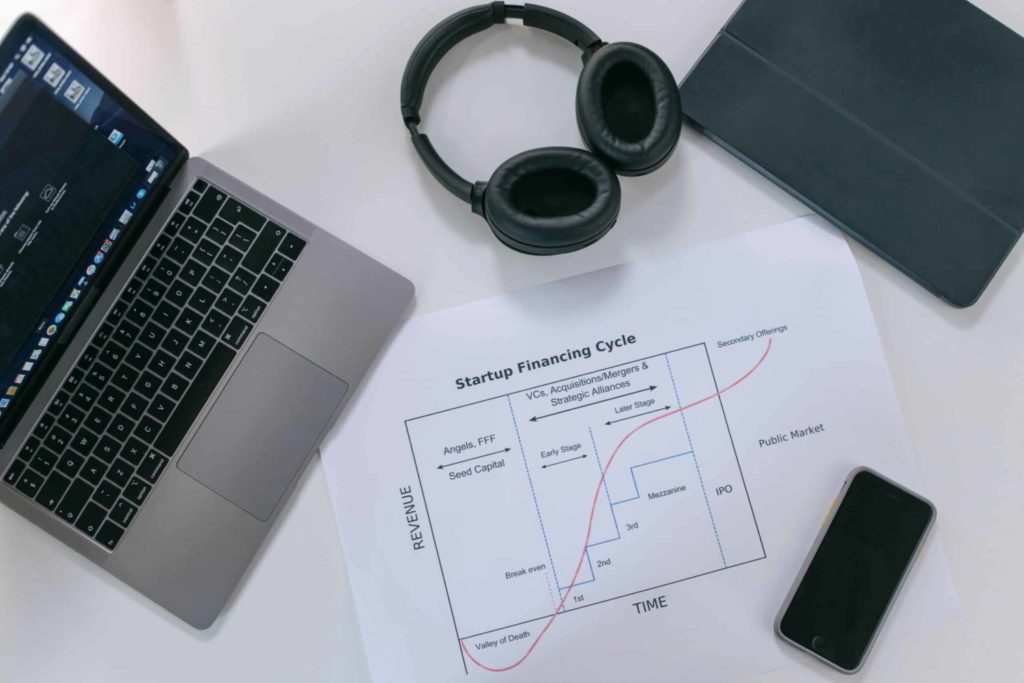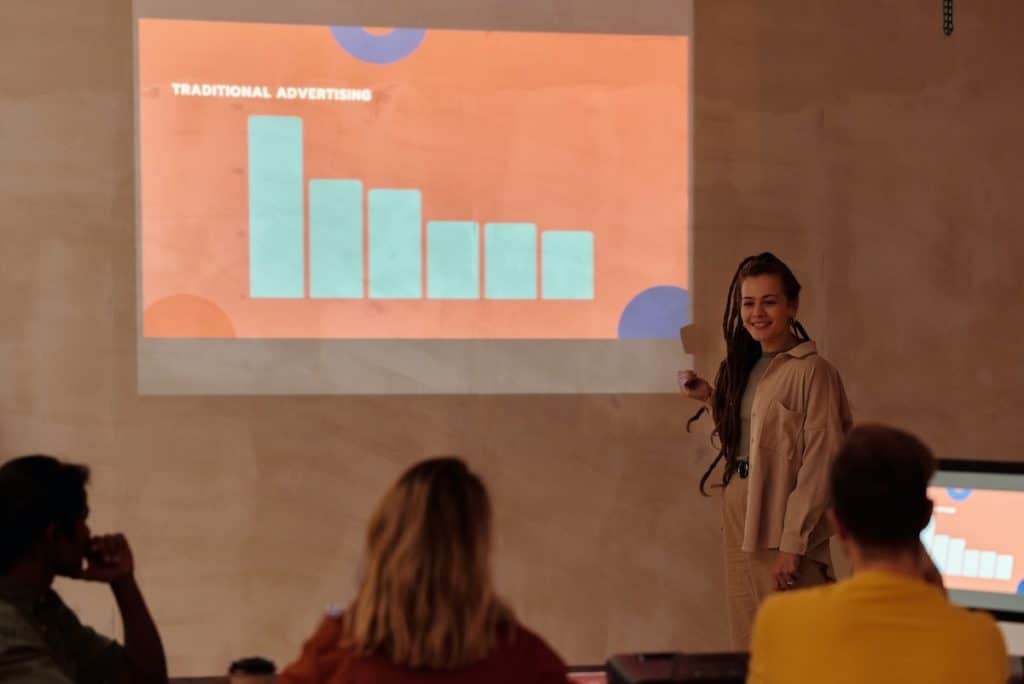Since 2011, the number of venture capital firms operating in Australia has grown from 15 to over 109. The great news for Australian founders and investors alike is that this trend will continue with the venture capital industry to reach new heights in the second half of 2021.
WHY?
- 💫 Positive tailwinds from the aftermath of the pandemic;
- 💥 Innovations in stubborn industries; and
- ✈️ Positive net migration of exceptional human capital to Australia
In this post, Sprint will dive into two key sectors that are likely to see increased attention over the next 6 months in the local VC industry, and at Sprint HQ.
(1) ECOMMERCE AFTER COVID – A FLASH IN THE PAN OR A NEW NORMAL?
When the pandemic forced businesses to shut their doors, retail moved online and Australian online goods spend finished 57% higher YoY against 2019.
Unsurprisingly, high-frequency shoppers overwhelmingly increased or maintained their shopping frequency in 2020. While this was a natural extension of past shopping habits, the change with arguably the most meaningful long-term impact was the uptake of new shoppers. Low-frequency online shoppers (individuals who made fewer than 4 online purchases between March and December in 2019) on average shopped online 52% more frequently across the same period during the pandemic.
This impressive growth translated to online sales collecting a record 16.3% of total Australian retail spend. Prior to 2020, this figure had typically hovered around 12-13%, significantly lower than other developed economies where the average online spend in 2019 was between 15 and 18%.
WILL ONLINE SHOPPING CONTINUE THIS NEW TRAJECTORY OR SUBSIDE?
Initial data points collected as the pandemic eased supports the former idea.
The ABS’ November COVID-19 household impacts survey collected data from 3,400 Australians and found that over a third preferred to do more online shopping than they did at the start of the pandemic. This finding was supported by Australia Post’s year-end survey, which indicated that the average shopper expected their online frequency to remain 28% higher than before the pandemic.
This makes sense, online shopping is easy and efficient, but for many people, it was never necessary. The pandemic changed this and resulted in nearly 1.4 million households buying online for the first time. It follows that some of these households will now shop online more regularly after having been exposed to the benefits of Ecommerce last year, driving up the average expected frequency rate.
What all of this means is that at the end of 2020, the Australian public intended to continue shopping online more often than they used to.
SO, WHAT HAVE WE SEEN?
The data so far supports the hypothesis – the most recent ABS online trade data includes earnings splits up to March 2021. Comparing February and March of 2021 with the same months in 2020, (which were largely prior to the March 23 lockdown) the online share of total retail is 37% higher on average MoM. In March of last year, online accounted for 7.1% of total retail turnover, in March of this year it accounted for 9.4%. This is a major shift, and is a clear indicator that the momentum of COVID-19 has not been lost.

SPRINTING TO THE CHECKOUT:
This proportional growth is a healthy tailwind for Ecommerce players, and this is a key thematic that Sprint has already capitalised on when we invested into YouPay:
- YOUPAY: The world’s first payment platform that enables customers to share the shopping cart with someone else. We believe in the phenomenal YouPay team, their vision to disrupt the payments industry and ultimately aid in solving the abandoned cart problem.
Llew Jury, Sprint’s Managing Partner has over 20 years of experience in Ecommerce, and firmly believes in YouPay’s value proposition,
“YouPay will change the game. They are solving one of the biggest problems in Ecommerce, the abandoned cart. They have the potential to rival the growth of BNPL, without ever providing credit or charging late fees.”
The shift towards online is consistent with our investment thesis into high growth ecommerce players, and an early validation of our mandate to generate alpha for patient capital.
(2) GREEN INTELLIGENCE – MODERNISING UTILITIES
Alongside Ecommerce, cleantech is currently proving to be one of the most compelling venture capital investment themes.
- Cleantech? Technology that has positive environmental impacts, and includes technologies related to recycling, energy usage and transportation.
It is a powerful investment thematic because of climate change and the underlying economics of renewable technology – companies and governments alike are looking to find ways to reduce emissions, and cleantech provides the avenue to achieve this aim.
HERE WE GO AGAIN…
This is not the first time investors have ridden the wave of cleantech hype; private capital piled into the sector from 2006 to 2011, only to be met with sub-par returns. An MIT study conducted in 2016 reported that across software, medical tech and cleantech, cleantech generated the lowest returns. They cited misaligned investment horizons, speculative funding of hard tech products, and a lack of exit opportunities as key investment hurdles.
SO, WHAT’S DIFFERENT TODAY? A LOT.
In the late 2000s, venture capital was broadly committed on a shorter-term investment horizon. Exits were sought after 3-5 years, and this put pressure on startups to deliver quickly. Whilst this was difficult for software companies, it was nearly impossible for cleantech companies that were looking to research and develop completely new materials or processes. Accordingly, many of these investments were written off by VC firms.
Today, VC firms have clearer investment horizons, and many (like Sprint) champion “patient capital”; capital that does not push for a premature exit, preferring to support founders by reinvesting in later rounds and keep companies private for longer.
VALUE REALISATION: CLEANTECH
The concerns relating to exit opportunities have changed tune as well. In the late 2000s, large utility players pulled back from renewable markets. Shell announced in 2009 that it would no longer invest into wind or solar, and BP followed suit in 2011 when it divested its stake in the solar industry. Both conglomerates leaned on the technologies’ supposed lack of economic viability when defending their withdrawals. These exits reduced the pool of potential acquirers, and in turn diminished the prospects of a non-IPO exit for cleantech startups.
Today, both Shell and BP have re-entered the sustainable infrastructure market and committed billions worldwide already. These decisions indicate the market’s progress in understanding cleantech, and the growing appetite of potential acquirers.
SPRINTING TO NET ZERO
Perhaps the most important difference between now and the last boom of cleantech investment is our progression towards net zero. Climate change is increasingly becoming a common feature of venture funds, and initiatives like the Paris Agreement have solidified sovereign commitments towards sustainable technologies.
Sprint supports this movement. Sprint has made two key cleantech investments in line with this thesis:
- LEAKSTER: A ground-breaking utilities service provider that uses proprietary hardware and software to detect, classify and pinpoint water pipeline leaks.
- RADIAN ENERGY: A market-leading energy retailer that provides customers with carbon-neutral alternatives to traditional electricity plans.
Leakster and Radian are examples of modern cleantech startups, backed by modern patient capital. We invested into these teams because they are committed to solving important problems, and they have a vision to scale their solutions to build a better tomorrow for future generations.
WE ARE SPRINTING
The team at Sprint will continue to deploy capital from the Sovereign Seed Fund throughout 2021.
(1) OUR MANDATE IS CLEAR
We want to find great founders and provide them the runway they need to become globally leading businesses that build a better tomorrow for future generations. We intend to stay true to this mission. If you fit this description, we would love to hear from you.
- Please get in touch with us here.
(2) SPRINT IS NOW RAISING ITS SECOND FUND
The Expansion Capital Fund (ECF) will focus on late seed and Series A investment opportunities. We will continue to focus on founders because this investment thesis has derived validation from the early success of our Sovereign Seed Fund. If you are a sophisticated or wholesale investor and would like to know more, we would love to hear from you.
- Please get in touch with us at info@sprint.vc
Written by Max Meyer (Associate) and George Bellas (Analyst)
References
- Australia Post, Inside Australian Shopping, April 2021
- ABS, Household Impacts of COVID-19 Survey (n=3400), November 2020
- Australia Post, Consumer Survey 2020 (n=2,011), December 2020
- ABS, Online sales – March 2021, May 2021
- MIT, Venture Capital and Cleantech, July 2016
- The Guardian, Shell dumps wind, solar and hydro power in favour of biofuels, 18 March 2009
- The Guardian, BP axes solar power business, 22 December 2011
- S&P Global, European super-majors Shell, BP leading the charge to electrification, 24 June 2019




